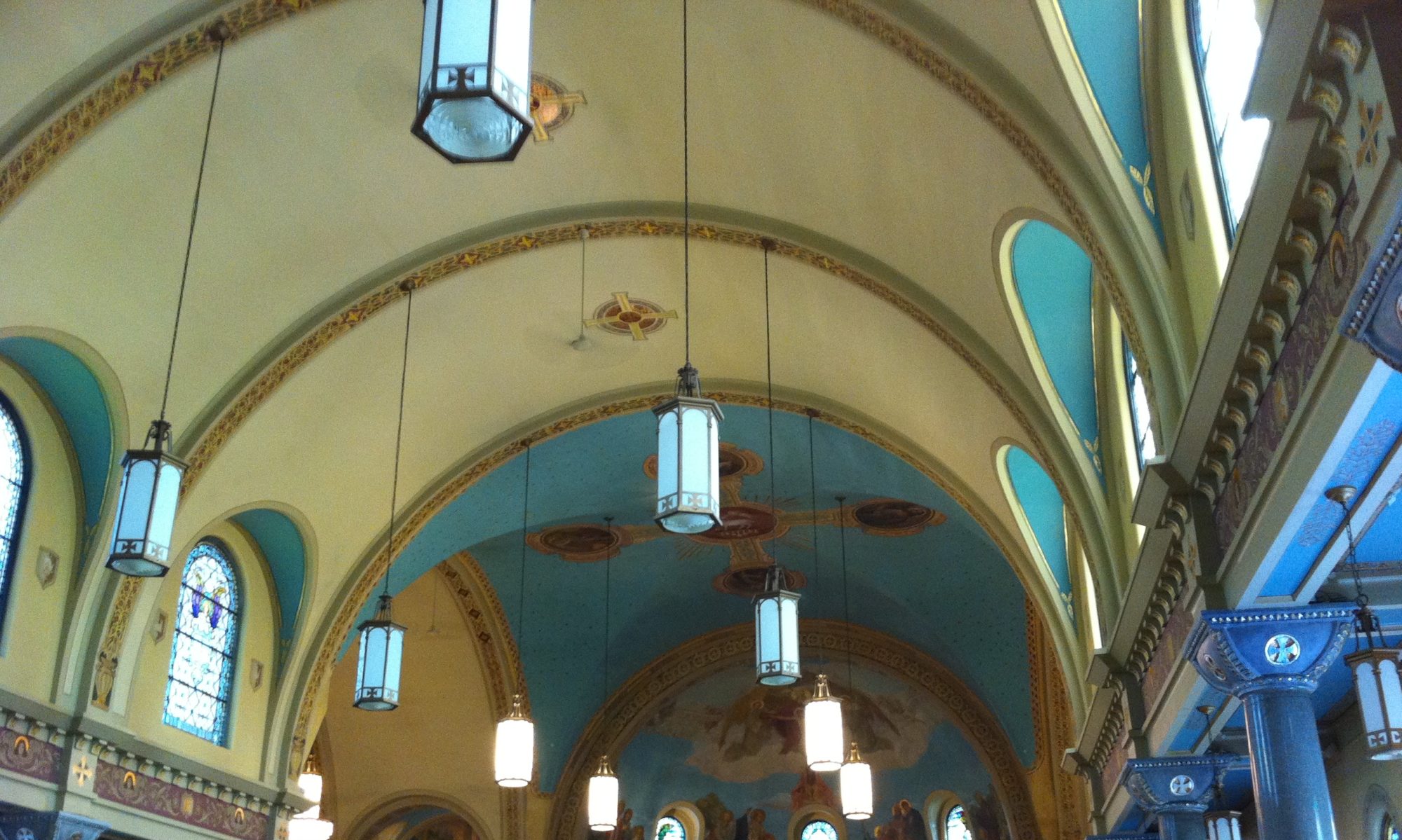Date: 5/6/12
Church: Delmar Reformed Church
Pastor: Dirk Gieser on sermon, David Corlett did some of the other parts of service
Time Spent: 9:30am-11:00am
Overall Impression: pretty much as before- nice people, nice place
Type: Reformed Church in America
Format: Traditional worship: announcements, unison words, hymn, unison prayer, children’s time, more unison prayer, scripture, sermon, doxology!, hymn, communion, hymn and closing
Thoughts: Second half of my planned visit to this church was totally worth it. The service felt like what would happen if you took a 1:1 mix of all the good parts of Methodist and Roman Catholic churches. The traditional space is very formal with lovely stained glass windows. The service was easy to follow, owing to the neatly printed outline in the service handout. If anything I actually found the traditional format more likable than the contemporary. It’s not like people were either stuffy or unfriendly at the traditional worship. I showed up in a clean but rather large tee-shirt and jeans with a rip in the knee, but no one frowned at me. The woman on my right briefly engaged me in conversation after service and would have talked longer, I think, if I hadn’t spied another person I knew from my camp counselor days. We also had the following exchange during service. She set a leathery covered folder on my stuff. I realized I must somehow not have given her enough space so I politely moved my coat and bag. Then she smiled and whispered “No, it’s for you to put your name in -only if you want to.” It was a folder with the attendance and it wasn’t to single me out as a newbie. I noticed her name and another were marked as regular attendees. So I put my name in and handed it to my other side. The lady on my other side also smiled at me and whispered that I could give it back to the first woman if I was done. This simple exchange made me very happy, because it demonstrated politeness and zero amount of pushiness. If all Reformed churches are as nice as this one and church #4, it will be my new favorite denomination.
The sermon was another about marriage; this time utilizing the first letter to the Corinthians. Paul (the letter author) talks about coming to the church and whether it is best to be single. Paul seems to like being single because a marriage is “impending distress”, but he says it’s fine to be married or single or even widowed. Come as you are and God will be cool with that. Now this Sunday an interesting thing happened. My blog was quoted. You may remember that I wrote about the first visit to Delmar Reformed and the sermon used Ephesians and a verse describing men and women and what they ought to bring to a marriage. Women were told to respect and men were told to love- this from the bible. Additionally Pastor Dirk made it clear women should also love and men should also respect. I pointed out that Paul might not have been forward thinking enough to state his sentiment with the equality it needed. This week Pastor Dirk noted my observation and then pointed out that in the following verse from Corinthians, our writer Paul actually gives men and women identical treatment:
For the wife does not rule over her own body, but the husband does; likewise the husband does not rule over his own body, but the wife does.
So husbands and wives can both say to each other “your bod is mine!” Is it just me or does Paul write kinda hot for a single guy?
A couple of additional points I left out regarding the service; 1) The only thing missing was the greeting of your neighbor. I am used to this in most churches, although it’s not like much was lost here. 2) It was a communion week. In this church you don’t have to go up front- they actually serve you at your seat! 3) Did I mention I love the doxology? I wish it could be my ringtone.
Overall Feelings: Now that I can accurately compare the two styles, I think the traditional version is plenty accessible that they don’t need a contemporary worship. The sermon style certainly felt the same. No one really minded my relaxed outfit at the traditional. And there were a couple things done better at the traditional. I felt better following a modestly detailed outline that the traditional service provided vs. the loosely written contemporary one. It’s also easier for me (coming from a musical background) to read music from a hymnal than guess at a melody line with words on a screen. But my advice is to go with what the congregation likes. Catering to the visitor over the regular is not a good idea. (go read my post about OldChurch) All in all I still really like this place.
